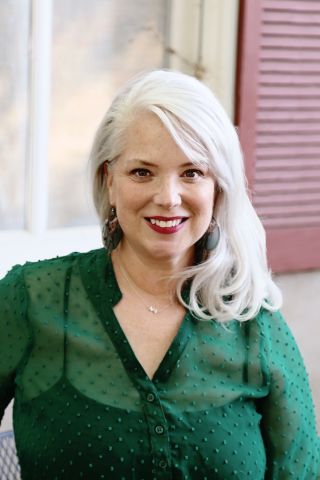Menopause
I Never Expected Menopause to Mess with My Sobriety
A Personal Perspective: Menopause can be a trigger in recovery.
Posted July 5, 2023 Reviewed by Lybi Ma

In the spring of 2021, I started to feel really lousy. “Well,” I thought, gloomily, “Covid finally got me.”
It wasn’t Covid. I would manage to avoid that diagnosis until later that year. I visited my family doctor and talked to her about all the symptoms: Weird stomach issues. Aching joints. Dizziness. Shortness of breath. Severe depression. A horrible ringing in my ears. Constant headaches. And fatigue so crippling I would not leave my bed until 1 PM on some days.
They ran tests. Drew blood. I waited.
I went to see my endocrinologist. More tests. A sonogram. Lots of bills.
Finally, I made an appointment with a psychologist. At this point, I was not sleeping at all and was having what I could only call “night terrors.” I would wake up, gasping, convinced that I was being strangled to death. I dreaded bedtime. If I am brutally honest right now, I would say that I was suicidal. I felt shrouded in doom and fear, and I could not even explain why.
And then, finally, I started to sweat.
And this is what caused Melissa, my doctor, to wonder out loud: “Hey. Maybe it’s perimenopause?” Hot flashes, the often laughed-at harbinger of menopause, saved me. Sort of.
In 2021 I was still having full periods. Robust ones, if you would excuse the descriptor. To me, menopause seemed impossible. But, I was 52 and as I described the weird sweating events that were happening now, Melissa’s face all but lit up. “Yes! It’s probably just menopause!” She said this, triumphant that we finally had landed on something.
I shrugged wordlessly, relieved to be diagnosed. She seemed so blasé about it with this pronouncement. All women who are still lugging around their uteruses get it, so it must not be a big deal.
The thing is, I had a diagnosis, but I still felt like I was dying.
I had never experienced anything like this. It was a new frontier. And yet, most of my medical team acted like it was a simple fix: get on estrogen and get on with it.
Estrogen was supposed to be the cure, but it didn’t work for me. Two days into taking it I had a sickening dip in my depression that was so bad I considered hospitalization. But finally, with a whole slew of appointments and help from my psychologist, I started on a different anti-depressant and some supplements and slowly started to get better. Slowly.
This is not a post so much about my menopause journey (which makes it sound so adventurous. Like I’m off to Bali to find myself and my hormones and set them free or something). I’m still working on understanding menopause.
This is a post about how all of this hormone stuff made me really consider drinking again.
I’ve been sober for 12 years. And I’ve been through the triggers. I first got sober in 2008 but I relapsed over the Christmas holidays in 2010. My new sobriety date is January 1, 2011, and I wrote about all this in my book, How to Be Perfect Like Me. I’ve been through all sorts of challenges, and the difficulties and hard work of daily recovery, and drinking was simply no longer an option for me.
Until menopause. Menopause made me wonder.
I found out that depression can severely spike during perimenopausal grumblings. When you’re not even in the thick of it, your brain starts fritzing out all over the place. Diagnosing this is tough because there are enough “solid symptoms” to pinpoint, as Melissa put it. This can be really depressing. And so on.
And the lack of solid sleep, for months, had whittled away at my sanity without me even realizing it. One night, while fearfully eyeing my bed, I found myself thinking, “A good hard shot of tequila right now would do the trick.”
I’m an alcoholic. A good hard shot of anything would not do the trick. But because I hadn’t realized menopause was happening to me, and that my anxiety about sleeping had reached richter scale proportions, the triggering thought of drinking again was able to wedge its way into my psyche. All defenses were down. I was a really sad, really tired, sober sitting duck.
When triggers strike, I have to acknowledge them. And I had for months been living in a foggy state of non-acknowledged symptoms that I couldn’t see the trigger through the alcoholic trees. I was susceptible. I was restless, irritable, and discontent. I was a mess.
Because I have some good sober tools in my arsenal, I did not drink. Drinking is no longer an option. And here are a few other things I did to help keep me sober:
- I was relentless about doctor’s appointments. In the past, I avoided doctor’s visits, or even canceled them, seeing them as a waste of time or simply too depressing. This time, I made all the appointments. I took a notebook and wrote down questions and answers. I read the pamphlets. I kept at it, doggedly, until we had some answers.
- I rested, a lot. I think everyone can say that, in the year of 2021, there was still a lot of isolation. Maybe a lot of resting. We were coming out of a pandemic, for pete’s sake. I allowed myself to rest when I was tired and I tried to listen to my body a lot.
- I got spiritual. This might sound woo-woo, but I had no answers at times. My higher power specializes in stuff like this, so we talked. A lot. There was a lot of crying.
- I practiced some back-stoop sobriety. I made a promise to myself to get outside every day, and to this day I make sure to get outside before 10 AM. Sometimes, I just sit on the porch and pet the cat. It really does help.
I am still in the throes of middle-ground menopause now. And, I am still sober. Because, drinking is no longer an option for me, no matter what my nutty hormones have to say about it.




